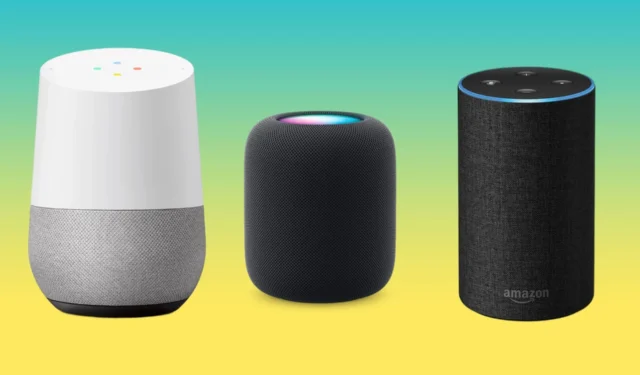
Most homeowners have viewed home automation as a futuristic objective because it is believed to make life easier and more accessible. The proliferation of smart devices and electronics has propelled the concept of Artificial Intelligence (AI) to connect and control a home autonomously. In recent years, the concept of home automation has garnered significant traction as numerous companies have introduced smart devices and personal assistants.
The digital greeting between these two technologies has paved the way for numerous user-independent automated processes.
This article will introduce the process of home automation and discuss its benefits.
The efficacy of home automation with AI assistants
Several aspects of everyday life have been significantly enhanced by the incorporation of smart appliances. This category includes nearly everything, including air conditioners, televisions, and even automatic garage doors. The objective of home automation is not only to make life more convenient, but also flexible and safe.
This concept is expanded upon by AI-based automation, which introduces the complete centralization of all supported devices that can execute basic sets of instructions.
How consumers can prepare for home automation based on artificial intelligence.
- Purchase a home assistant powered by AI and configure it for voice recognition.
- Utilize as many intelligent home devices as feasible.
- Ensure that these devices are interoperable and can connect to a single platform.
- Connect the home assistant and configure various command and task instructions.
It is essential to observe that this process can be challenging because AI-based home automation is uncommon. Utilize the assistance of manufacturers and installation assistants for optimal results.
Home automation
Automation based on artificial intelligence can significantly reduce the chaos of controlling each appliance with a distinct companion application. To complete its duties, the AI will centralize and assume control of the selected smart devices.
A common example of such a system and its effect would be an AI that tracks its owners and, when they approach their home within a certain distance, automatically turns on the air conditioning, adjusts the temperature, closes or opens the draperies, and unlocks the door.
Connecting with robotic floor cleaners, the AI would also be able to conduct floor cleaning. The elimination of such tasks can create a more relaxed atmosphere for householders and facilitate their way of life.
Energy efficiency
The presence of a programmed assistant would reduce the likelihood of forgetting duties. When the proprietors are away, AI-based home automation will conserve as much energy as possible and maintain only the essentials.
This can be accomplished by allowing AI to control smart thermostats, electrical outlets, and even illumination sensors. This can significantly reduce a household’s carbon footprint and increase energy efficiency.
Home security
Not requiring sleep or rest is one of the finest characteristics of an AI assistant. It can perform duties and accept instructions at any time of day. This becomes an outstanding instrument that can be linked to security devices such as electronic door locks and cameras.
The artificial intelligence can be programmed to sound alarms, turn on all the lights, and even dial the local emergency number if someone attempts to forcibly enter the home. Eventually, the AI is able to recognize familiar features and monitor security as necessary.
The future of residences will be automated due to the rapid development of technology. Automation can play a crucial role in reducing energy consumption and improving the overall quality of life.




Leave a Reply ▼